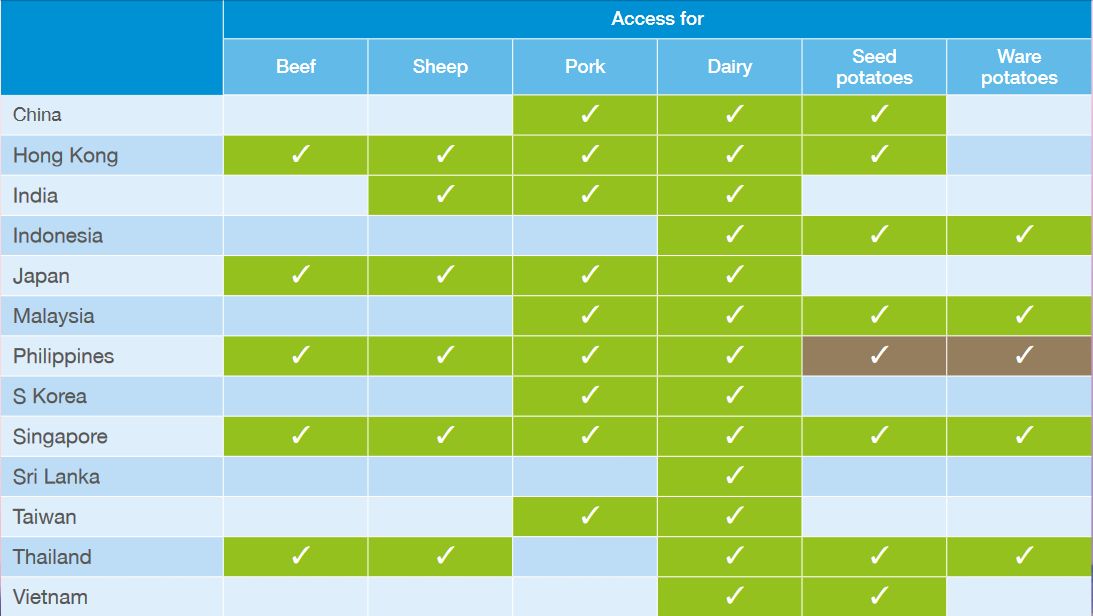AHDB urges British meat producers to focus on the Asian markets
The British meat industry is invited to explore the opportunities of a market of 4.5 billion people, with a clear trend of growth in the middle-class segment, through an AHDB report on Asian markets.
In fact, in 2009, the size of the global middle class was 1.8 billion. This is expected to hit 3.2 billion by 2020 and 4.9 billion by 2030, with the bulk of growth coming from Asia – accounting for 66% of the global middle-class population and 59% of middle-class consumption in 2030, according to an OECD outlook quoted in the report.
Middle-class growth drives changes in lifestyles and consumption patterns. Citizens who previously looked to food for sustenance increasingly demand meals that satisfy other needs, including convenience, flavour and a desire to try new things. There is a growing appetite for meat products as diets shift to include more animal protein, but cultural differences mean this pattern isn’t the same everywhere.
Also, the economic development of each and every country paints a different picture of Asia. "The ‘tiger’ economies of Singapore, Taiwan, Hong Kong, and South Korea saw rapid growth in the latter half of the twentieth century and they now have matured markets with wealthy consumers and high spend. China is beginning its transition from an export-orientated economy to one driven by domestic consumption, while the emerging markets of Indonesia, Malaysia, the Philippines, Thailand and Vietnam (the ‘tiger cubs’) are now growing at around 5% a year", according to AHDB report

Access for British red meat has increased over the past 2 years with the UK now able to export beef to the Philippines and Japan, as well as pork to Taiwan. China lifted its ban on British beef exports last year, a vital first step in unlocking this major market. The UK is currently working to further open Asian markets for red meat products.
According to GlobalData, Asia-Pacific is the largest market for meat in the world, valued at US$288.1 billion, which was a 30% share of the global value sales in 2018. This is expected to continue growing at a compound annual growth rate (CAGR) of 2.2% from 2018–2023, with beef, sheep meat and pork all featuring at the dinner table to varying degrees across different countries. Asia’s rapidly growing middle class is fuelling the increase in protein consumption, with markets such as China and Hong Kong key to current demand and future growth. The developed economies of Japan and South Korea are expected to decline in volume and value up to 2023.
This is one of the main conclusions of the Aragón Pig Forum, an event organized by the Int...

Romania is taking billions of dollars out of the national economy due to the exponential increase...

The combination of a number of concrete initiatives and a significantly higher price has prompted...
